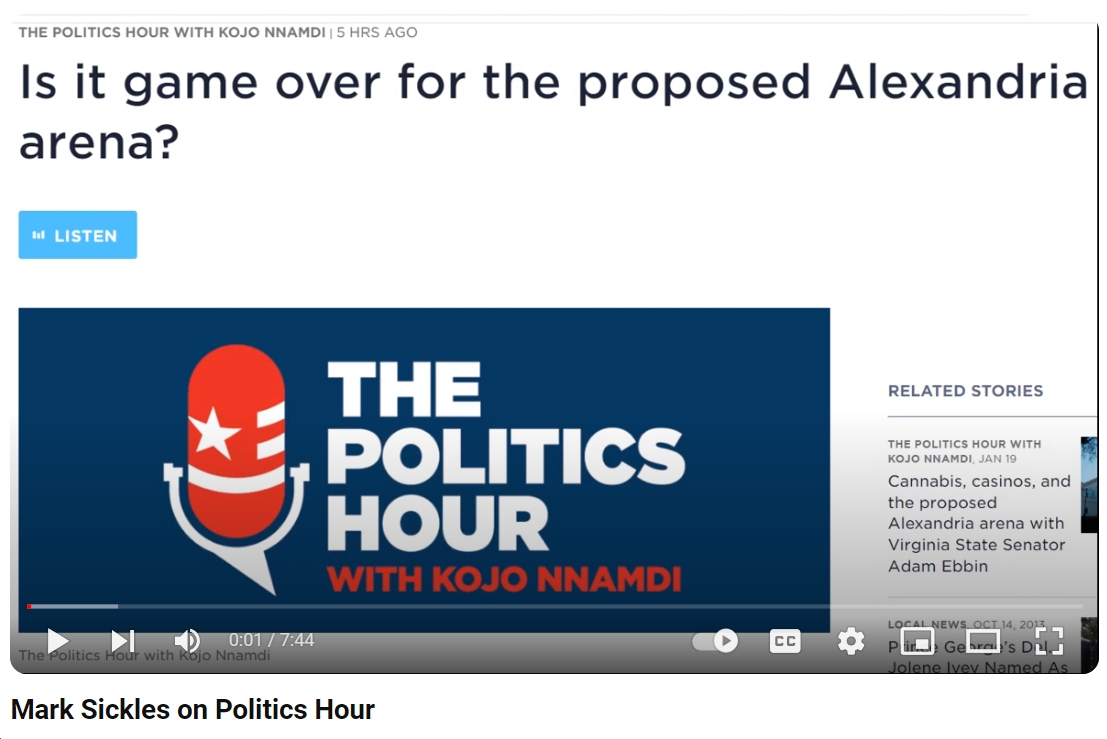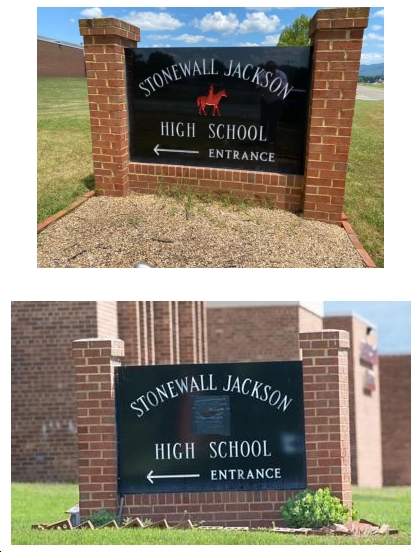Before we begin, let me get something out of the way first: namely, that there is no way in hell to definitively/scientifically determine the impact variable x, y or z had on the performance of candidates a, b or c in a particular election. After all, we can’t re-run elections, holding one variable constant, in a controlled, double-blind laboratory setting or whatever. Still, over the years, I’ve heard that the Washington Post endorsement either definitely does – or definitely does not – make a YUGE difference in Democratic primaries. That includes the recent Virginia Democratic primary, where I’ve heard some folks arguing that the Post endorsement helped swing the election towards Ralph Northam in the closing days. Since we can’t re-run the election, as described above, let’s look at some historical evidence and see whether it’s suggestive.
In 2013, the Washington Post endorsed Justin Fairfax for Attorney General and Ralph Northam for Lt. Governor. So how did those candidates do in the core Washington Post Virginia readership area (Arlington, Alexandria, Fairfax, Loudoun, Prince William County, Falls Church).
- Justin Fairfax lost Falls Church 68%-32%, Arlington County 61%-39%, Alexandria 60%-40%, Fairfax County 54%-46%, Loudoun County 85%-15% and Prince William County 51%-49%. No sign of any particular Washington Post effect there, considering that Fairfax received 48.3% of the vote statewide. In the Post’s core readership area, Fairfax wildly under-performed his statewide performance. Did the Post endorsement help, hurt or have no significant impact on Justin Fairfax in 2013? Who knows, but I can’t see how it helped particularly.
- Ralph Northam lost Falls Church 57%-43%, Arlington County 54%-46%, Loudoun County 51%-49% and Prince William County 51%-49%. Northam won Fairfax County 54%-46% and Alexandria 51%-49%. Again, I’m not seeing a clear Washington Post endorsement boost, given that Northam won the primary statewide over Aneesh Chopra by a 54%-46% margin statewide. I’d also note that Northam did very well in lots of places – Hampton Roads, Richmond, etc. – where the Post endorsement wouldn’t have made any difference at all.
In 2006, the Washington Post endorsed Harris Miller over Jim Webb for U.S. Senate. How did Miller do?
- Post endorsement in hand, Miller proceeded to get wiped out in the Post’s core readership area: 69%-31% in Arlington County, 61%-39% in Fairfax County, 66%-34% in Loudoun County, 61%-39% in Prince William County, 60%-40% in Alexandria and 65%-35% in Falls Church. Overall, given that Webb only won the primary by a 53%-47% margin, there’s certainly no sign the Post’s endorsement helped Miller. I’d also note that the Post’s paper circulation was much larger in 2006 than it is today, so you’d think its endorsement would have been a bigger deal back then. Apparently not in any positive sense!
Now here’s the one people always cite as evidence the Post endorsement REALLY matters. On May 22, 2009, the Washington Post endorsed Creigh Deeds for governor over Terry McAuliffe and Brian Moran. How did that one work out?
- According to polling, this endorsement certainly could have boosted Deeds – although of course many other factors were in play, such as the vicious nastiness between McAuliffe and Moran, which turned a lot of Democratic primary voters off. The effect wasn’t necessarily apparent immediately, as SurveyUSA had Deeds at 26% pre-endorsement and 29% about ten days after the endorsement. Another pollster, PPP, had Deeds at 20% pre-endorsement and 27% a week after the endorsement. Deeds kept gaining after that, winning the primary with nearly 50% of the vote. In the Post’s core readership area, Deeds did very well, with 43% in PW County, 47% in Loudoun County, 50% in Fairfax County, etc. So I’d say this is a decent case for the Post’s endorsement making a difference, although personally I’d argue that the dynamics of that race — Moran and McAuliffe pounding each other viciously, while Deeds basically stayed out of it — were a much bigger factor. Of course, we’ll never know, but that election’s probably the best case for the Post endorsement making a difference in a Virginia Democratic primary.
In the 2017 Democratic primary, the Post did NOT endorse for Lt. Governor. What impact did that have on the LG race?
- Despite the lack of endorsement for Justin Fairfax, as was the case in 2013, Fairfax far out-performed his 2013 performance in the Post’s core readership area: 46% in Arlington (compared to 39% in 2013, when the Post endorsed him, and against only one other candidate), 46% in Alexandria (up 6 points from 40% in 2013), 49% in Fairfax County (up 3 points from 46% in 2013), 52% in Falls Church (up 20 points from 32% in 2013), 42% in Loudoun County (up 27 points from 2013, when in fairness Loudoun County native son Mark Herring was Justin Fairfax’s opponent), 43% in PW County (down 6 points from 49% in 2013). So, Fairfax mostly improved his performance in the Post’s core readership area in 2017 compared to 2013, despite (because of?) the fact that the Post endorsed him in 2013 but not in 2017. Hmmmm.
In the 2017 Democratic primary, the Post DID endorse (Ralph Northam over Tom Perriello) for Governor, just one week before the primary, on June 6. How did Perriello do in the Post’s core readership area?
- In Arlington, Perriello received 38% of the vote; in Alexandria, 39%; in Fairfax County, 40%; in Falls Church, 36%; in Loudoun County, 48%; in Prince William County, 50%. That compares to Perriello’s statewide 44% showing. So…Perriello overperformed his statewide performance in Loudoun County and PW County, while underperforming in the rest of the Post’s core Virginia readership area. How did the Post endorsement of Ralph Northam impact Perriello’s standing? It’s hard to tell, because frankly most of the polling was horrible. But one poll that nailed it – the VEA poll (5/9-10) by Public Policy Polling, which had Northam winning by 10 points, almost exactly what the actual final result was yesterday – had Northam up 35%-33% in Northern Virginia, with the remaining 32% undecided. Given the final results, it looks like Northam’s two-point lead in Northern Virginia did increase significantly in Arlington, Alexandria, Fairfax County and Falls Church, but not particularly in Loudoun County or PW County. So…maybe the Post endorsement persuaded many of those undecided voters to vote for Northam? Or maybe it was Northam’s advertising blitz in Northern Virginia? Or perhaps it was the fact that nearly every single elected official in Northern Virginia in the election’s closing days sent out emails urging people to vote for Northam? Or that voters in Northern Virginia simply preferred Northam for any number of reason(s) other than the Post endorsement? Maybe some other factor(s)? Who the heck knows.
A few other data points to consider.
- In June 2015, the Washington Post’s endorsements in Democratic primaries had a mixed track record (“For instance, Katie Cristol, Paul Krizek and Penny Gross – all of whom the Post/Lee Hockstader endorsed – won last night. On the other hand, Atif Qarni, Craig Fifer, Bill Euille, Peter Fallon and Tim Sargeant – again endorsed by the Post – all lost.”). Meh.
- In the 2013 general election, the Post’s endorsements went 4-7 in seriously contested NOVA House of Delegates races. Not so hot.
- In 2011, the Post endorsed in three Democratic primary races – the 30th and 31st Senate districts, the 49th House of Delegates district – of which two (30th and 31st) appeared to be truly competitive. The Post won one (Barbara Favola) big and lost one (Rob Krupicka) in a major upset. Mixed bag there.
Bottom line: We really don’t know what impact the Post’s endorsement of Ralph Northam had in the 2017 Democratic gubernatorial primary. But based on the Post’s mixed historical track record in picking winners in northern Virginia races, plus the other evidence presented above, I wouldn’t bet the ranch that it had a big one.
















